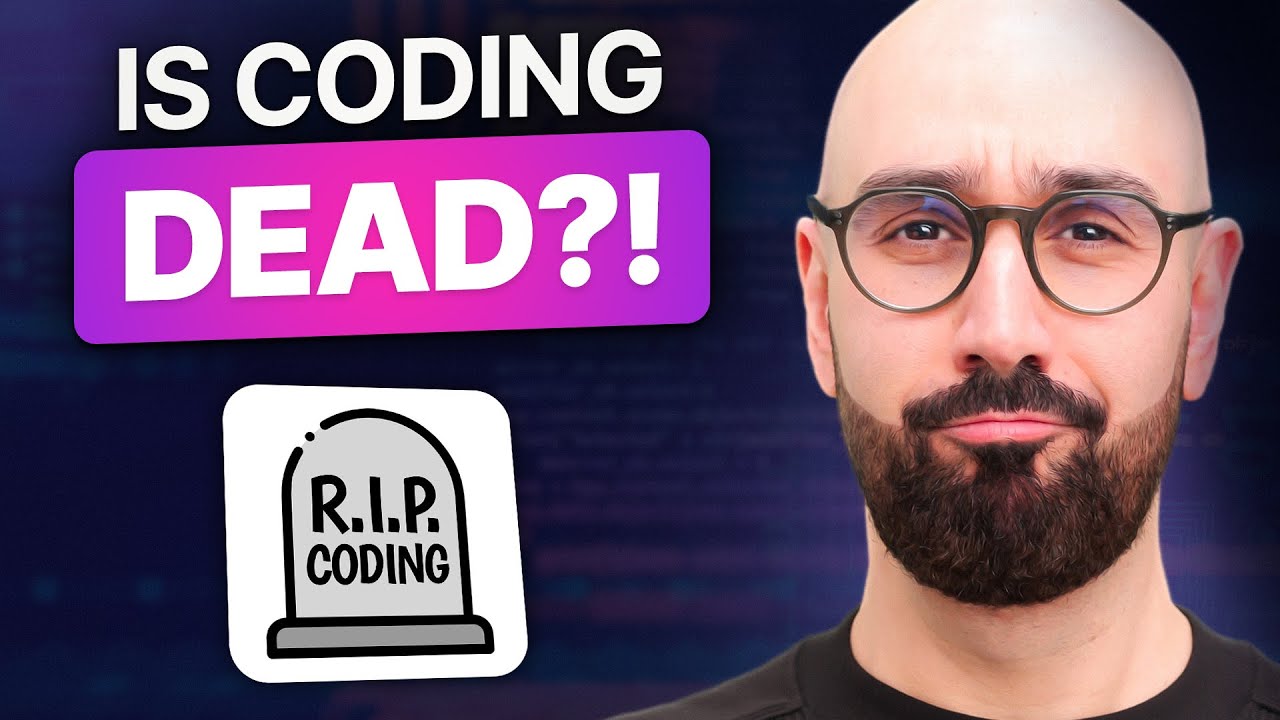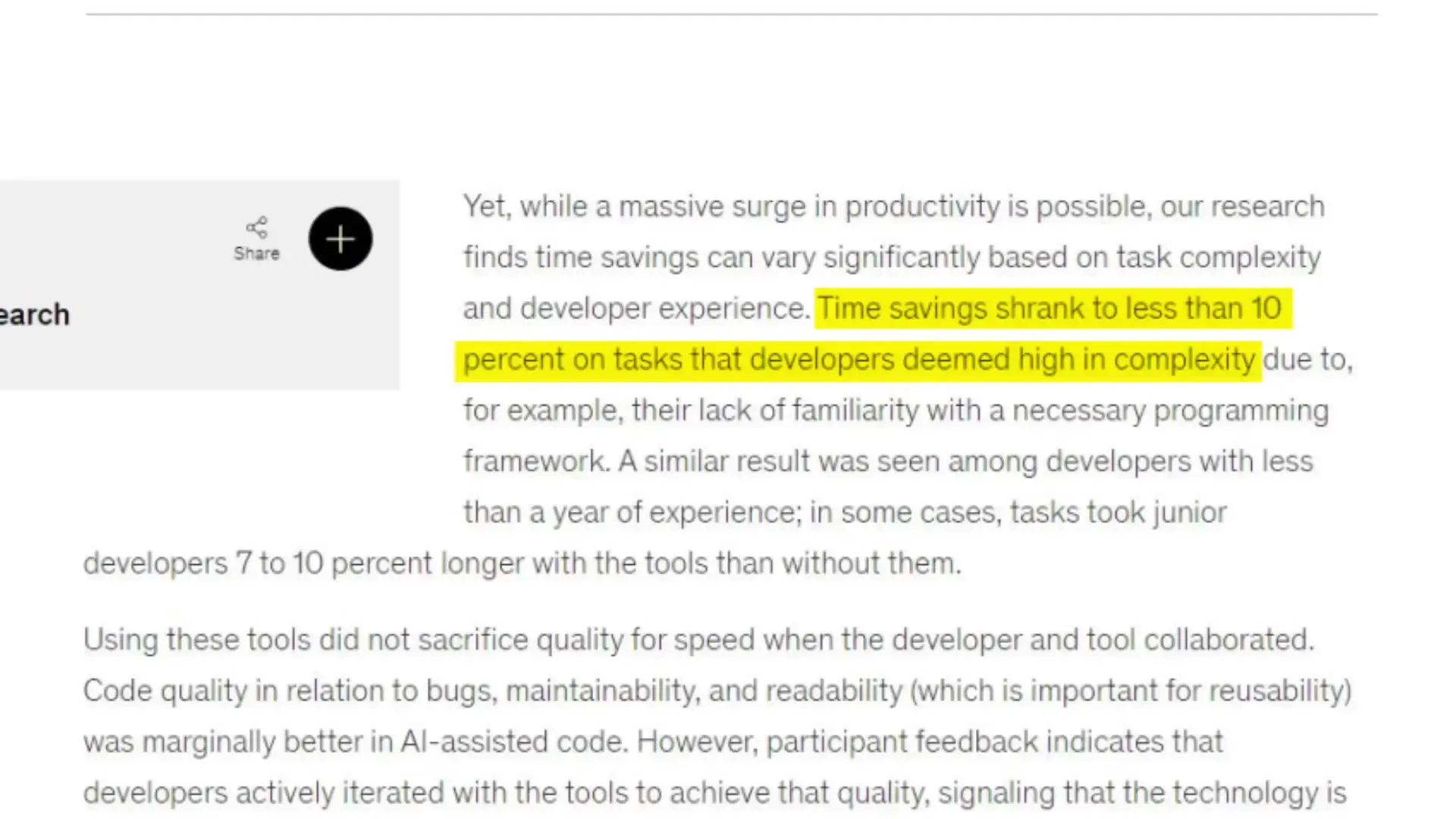
If you're considering a career in programming but worried about AI replacing software engineers, you're not alone. This concern has become increasingly common as AI tools like ChatGPT and GitHub Copilot generate code with impressive capabilities. But is coding still worth learning in today's rapidly evolving technological landscape? Let's look at what the data actually tells us about the future of software engineering.
What Government Employment Data Shows About Coding Careers
According to the United States Bureau of Labor Statistics (BLS), employment for software developers is projected to grow by 26% from 2022 to 2031. This is significantly higher than the average growth rate of 3% across all occupations. This strong projection indicates that despite AI advancements, software engineering roles are expected to remain in high demand for the foreseeable future.
But while the number of jobs may increase, the nature of software engineering work is likely to transform. Understanding this evolution is key to determining if coding is worth learning in the age of AI.
The Evolution of Programming: From Machine Code to AI Assistance
To understand AI's impact on coding, it helps to look at how programming has evolved historically. In computing's early days, programmers wrote code in binary (zeros and ones), manually calculating memory addresses and managing system resources. It was tedious, error-prone work that required extreme precision.
The introduction of compilers revolutionized programming by allowing developers to write code in human-readable languages like C++ without worrying about low-level details. This technological advancement didn't replace programmers - it made them more productive and enabled the creation of increasingly sophisticated software.

AI is following a similar trajectory. Rather than replacing programmers, AI tools are becoming advanced assistants that can handle routine coding tasks, allowing developers to focus on more complex problem-solving, design, and innovation. This shift will enable the creation of more sophisticated software systems that most people can't even imagine today.
The Limitations of AI-Generated Code
While AI can generate functional code, research shows it has significant limitations. A comprehensive study analyzing 153 million lines of code between January 2020 and December 2023 found concerning trends regarding code maintenance. The study predicted that "code churn" - the percentage of lines reverted or updated within two weeks of being written - is projected to double in 2024.
This highlights a critical point: AI can help produce more code faster, but quantity doesn't equal quality. Human oversight remains essential for reviewing and refining AI-generated code before it can be deployed to production environments.

Core Programming Knowledge Remains Relevant
Even as AI tools advance, the fundamental knowledge that software engineers possess will continue to be relevant. Developers will still need strong understanding of:
- Data structures and algorithms
- Programming language fundamentals
- Software architecture principles
- Development tools and frameworks
- Testing methodologies
- Security best practices
This knowledge is necessary not just for writing code, but for effectively reviewing, refining, and implementing AI-generated solutions. Anyone claiming you can build production-quality software without understanding coding fundamentals is disconnected from the realities of software engineering.
Critical applications that run our banks, airlines, healthcare systems, and other essential infrastructure require developers who deeply understand the systems they're building. A person with no coding knowledge cannot simply instruct an AI to build such systems safely and effectively.
AI's Real Impact on Developer Productivity
A McKinsey study on AI's impact on developer productivity revealed interesting patterns. While AI tools showed significant benefits for tasks like documentation (up to 50% improvement) and basic code generation, the productivity gains dropped dramatically for more complex work:
- Documentation: ~50% productivity improvement
- Basic code generation: ~30-40% improvement
- Code refactoring: ~20% improvement
- Complex programming tasks: Less than 10% improvement

These findings contradict the notion that one senior engineer using AI could replace multiple developers. The productivity gains from AI are most significant for routine tasks, not the complex problem-solving that constitutes much of a developer's work.
Coding is More Than Just Writing Code
It's also important to recognize that coding is only one aspect of a software engineer's job. Developers spend substantial time on activities that AI cannot easily assist with, including:
- Gathering and analyzing requirements
- Collaborating with stakeholders
- Designing software architecture
- Planning development workflows
- Debugging complex issues
- Participating in code reviews
- Mentoring junior developers
While AI may boost programming productivity, it doesn't necessarily improve overall productivity across all these essential activities.
The Future Software Engineer: Coding Skills Plus AI Proficiency
Rather than making coding skills obsolete, AI is creating a new paradigm where developers need both traditional programming knowledge and AI expertise. Future software engineers will likely spend less time writing boilerplate code and more time on design, innovation, and working with AI tools to solve complex problems.
Think of it like an architect using advanced design software. The architect doesn't need to manually draw every element, but they still need to understand architectural principles, structural engineering, and design aesthetics to create functional, beautiful buildings. Similarly, software engineers will need to understand code fundamentals to effectively leverage AI tools.
Crafting effective prompts for AI tools is becoming a valuable skill in itself - one that requires deep understanding of programming concepts and frameworks. This isn't an easy skill to develop; it combines problem-solving abilities with technical knowledge.
Is Learning to Code Worth It in 2024 and Beyond?
If you're wondering if coding is still worth learning in the world of AI, the data suggests a clear answer: yes. Software engineering remains a high-growth field with strong job prospects. While AI will change how programmers work, it won't eliminate the need for skilled developers who understand code fundamentals.
The future of software engineering likely involves more complexity, not less. Just as today's web developers need to know numerous technologies (HTML, CSS, JavaScript, frameworks, testing tools, version control systems), tomorrow's developers will need even broader knowledge bases that include AI tools and techniques.
Who Should Learn Coding in the AI Era?
- Career changers looking for growth opportunities in tech
- Students planning their educational and career paths
- Professionals in adjacent fields who want to enhance their technical capabilities
- Entrepreneurs building technology products or services
- Anyone interested in understanding how software shapes our world
If you enjoy building things with code and find the idea of shaping the future with technology exciting, don't let fear about AI advancements hold you back. Software powers our world, and that won't change anytime soon. The tools will evolve, but the fundamental skill lies in learning, adapting, and solving problems creatively - something humans excel at.
Conclusion: Coding + AI = The Future
Is coding worth learning with AI on the rise? Absolutely. But the most successful developers won't be those who only know traditional coding or those who only know how to prompt AI. The future belongs to those who master both - understanding programming fundamentals while effectively leveraging AI tools to enhance their capabilities.
Rather than asking if coding is still worth learning, perhaps the better question is: How can I combine coding skills with AI literacy to become an even more effective developer? That's where the greatest opportunities lie in the evolving landscape of software engineering.
Let's Watch!
Is Coding Worth Learning in an AI-Dominated World? Data Says Yes
Ready to enhance your neural network?
Access our quantum knowledge cores and upgrade your programming abilities.
Initialize Training Sequence